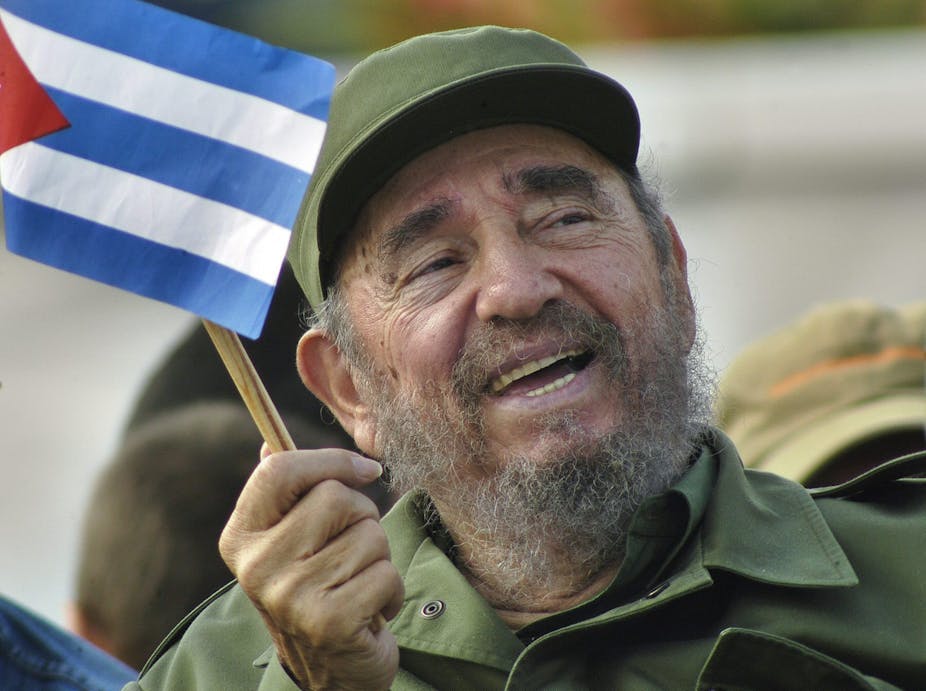Whichever way we perceive of Cuba’s fallen leader Fidel Castro Ruz, no one can really deny the great limitations inherent in traditional, liberal forms of governance in bringing about a more meaningful life for the overwhelming majority of the world’s people.
Proponents of capitalism cannot evade the basic reality that the mechanisms, rules and procedures of the market economy are essentially based on the principle of competition. On this view, individual and not social advancement remains life’s primary purpose. The profit motive is both the wellspring and thrust of capital accrual, notwithstanding how restrained or subtle this objective may be articulated in class society today.
All of the world’s struggling masses owe Castro an enormous debt for consistently and fearlessly articulating this debilitating aspect of political life today.
Castro’s critique of the US multiparty system
Castro has unfalteringly counter-argued that the US advocates a multiparty system that basically consists of two dominant variants, very similar in method, objectives and goals. Thus, as Castro wrote in “War, Racism and Economic Injustice: the Global Ravages of Capitalism”, it has
produced the most perfect one-party system in the world.
Over 50% of the people there do not vote, and the team that manages to raise the most funds is also the one that wins with votes from about a quarter of the electorate.
According to Castro, the US system generally is “undermined by disputes, vanity and personal ambition”. It operates within “an established economic and social model that offers no real alternatives for fundamental socioeconomic change”. Ultimately, it is the capitalist system that elevates large national and international companies to positions of actual governance, Castro wrote.
They are making the decisions on investments and development. They are responsible for material production, essential economic services, and a large part of social services. The state simply collects taxes and then distributes and spends them. In many of these countries, the entire government could go on vacation and nobody would even notice.
He asked:
How many so-called democratic states are up their necks in debt? How many of them allow up to 30% of the population to live in conditions of extreme poverty? Why should countries with tens of thousands of children wandering the streets and countless numbers of illiterate people be treated better than we are?
US Positions
In 2007 then President George W Bush noted that
despite the promise from Cuban rulers to grant its citizens individual liberty, they have denied them basic rights that the free world takes for granted … the Cuban regime subjected the people to rat-infested prisons and a police state.
The previous year the leader of the right-wing Miami-based Cuban American Foundation explicitly appealed to the Cuban military to stage a coup.
(Y)ou have the opportunity to give the highest and most noble service to our homeland through quick and decisive action; (this will) bring an end to the dictatorship of the Castro brothers.
And in August of the same year the then US secretary of state Condoleezza Rice said:
All Cubans who desire democratic change can count on the support of the United States … we stand ready to provide you with humanitarian assistance.
Castro’s response
In reaction to the claim that Cuba is a police state, Castro has said:
Do you really think that Cuba and the revolution would exist without a maximum degree of people’s participation?
As “revolutionary leader” and “supreme commander” of the island’s military forces he could claim “no moral rights if death squads paraded in Cuba or if a single person had vanished” on account of revolutionary policy. The Cuban nation is “a rebellious people with a high sense of justice who would not have forgiven us any one of these acts”.
But, as some may ask, have the Cuban people not perhaps been deluded - by surrendering their basic liberties, while defending their equality? Here, of course, we can add that the Cuban people are among the most highly educated and cultured across the globe today. Their unswerving devotion to, and deepest admiration of, their leader should be crystal clear in this time of intense national mourning.
In a 2002 speech Castro strongly maintained that Cuba’s so-called “pro-democratic revolution” was but a process “wrapped up in lies and slander”. The island’s self-styled “dissidents”, he noted, “have the same origin and the same leadership and are mere instruments of US policy directed against the Cuban state”.
Those who claim to advance the anti-revolutionay cause were, in reality, “former CIA members or the descendants of well-known war criminals who had escaped to the US when the revolution triumphed”. Under his rule, “not once has there been a case of tear gas being used against the people or the spectacle of riot police, horses or armoured cars repressing the people” – “things that are seen very frequently in Europe and the US”.
Responding specifically to George W. Bush’s allegations, Castro composed a personal memo, entitled “A Message from Fidel to Bush”, parts of which read as follows:
Your genocidal blockade, your support for terrorism … your unjust punishment of the five Cuban heroes … the shameful torture being carried out in the occupied territory of Guantanamo must come to an end.

